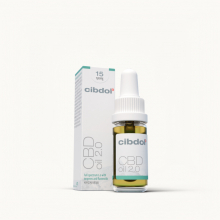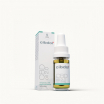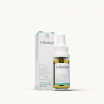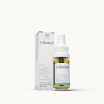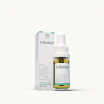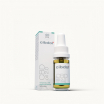Can CBD Oil Enhance Your Fitness Goals and Performance?
Published:
Fitness enthusiasts and athletes are always looking for ways to improve their performance and achieve their goals faster. Lately, CBD oil has been receiving a lot of attention for its potential benefits related to exercise recovery, reducing inflammation, relieving pain, and decreasing stress and anxiety. Could supplementing with CBD oil help boost your fitness routine? Let's take a look at the research.
Contents:
- Exercise Recovery
- Reduces Exercise-Induced Stress
- Decreases Discomfort
- Improves Sleep Quality
- Reduces Fatigue
- Regulates Appetite
- Reduces Nausea
- Potential Drawbacks of CBD Oil
- How to Incorporate CBD Oil Into Your Fitness Routine
- What’s the Best CBD Oil Dosage for Fitness?
- Takeaway
- Frequently Asked Questions About Using CBD Oil for Fitness Goals
- What types of CBD products are best for fitness and recovery?
- What does CBD feel like when working out?
- Can you take too much CBD for athletic performance?
- How long does it take for CBD to work for fitness?
- Should you take CBD before or after a workout?
- Can you build a tolerance to CBD for athletic performance?
- Is CBD legal in sports and professional athletics?
- Will CBD make me fail a drug test?
- Can you combine CBD with pre-workout supplements?
- What’s better for sore muscles: CBD topicals or oils?
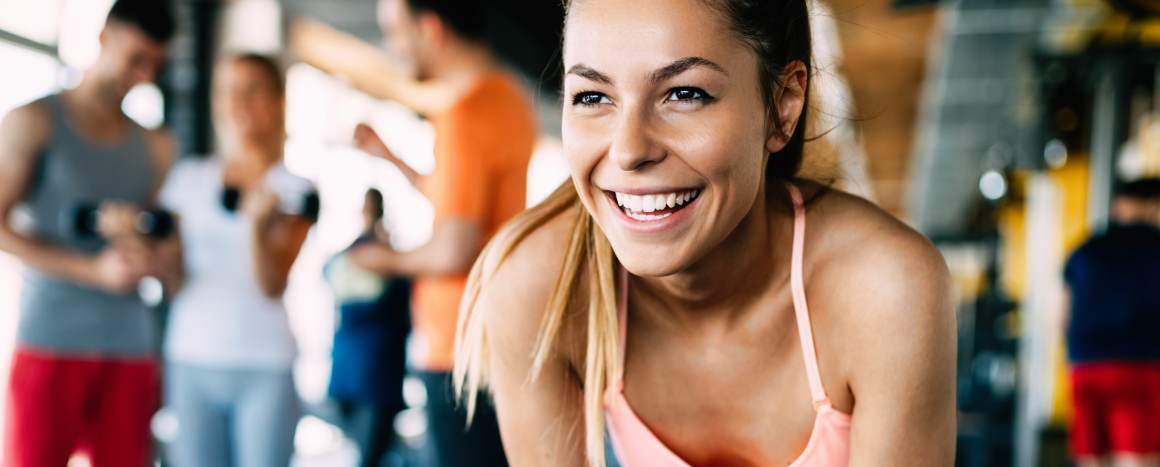
Exercise Recovery
Intense exercise can damage muscle tissue. The body needs time to repair this damage before the next workout in order to become stronger and avoid injury. CBD may help speed up recovery time.
How exactly does CBD help with exercise recovery? Research points to CBD's ability to reduce inflammation and pain. Let's break it down:
- Reduces Inflammation: Exercise causes microtears in muscle fibers, leading to inflammation. CBD has been shown to reduce inflammatory markers in the body. This helps relieve muscle soreness so you can recover faster.
- Relieves: CBD activates receptors in the brain and immune system involved in regulating discomfort. Multiple studies confirm that CBD can reduce discomfort. This can further aid recovery.
By speeding up recovery, CBD allows you to workout more frequently while avoiding overtraining. Quicker recovery also enables muscles to adapt and grow stronger at a faster rate.
Do you struggle with sore, stiff muscles after tough workouts? Adding CBD oil to your post-exercise routine could help you recover faster.
Reduces Exercise-Induced Stress
Working out places both physical and mental demands on the body. While exercise reduces anxiety and stress over the long-term, intense training can acutely increase stress levels. CBD may help take the edge off.
Research shows CBD can lower stress and anxiety by influencing serotonin receptors in the brain. It also reduces cortisol levels, known as the stress hormone. Plus, CBD regulates the GABA neurotransmitter, involved in curbing anxiety.
By relieving exercise-induced stress, CBD allows you to workout harder and longer. It also enables you to maintain focus during demanding training sessions when stress would normally drain your concentration. Less anxiety and more energy equals better performance.
Decreases Discomfort
Fitness pursuits like weightlifting and high-intensity interval training (HIIT) take a toll on the body. Joints and muscles often ache both during and after intense exercise sessions. For some people, nagging discomfort can discourage them from exercising consistently.
We already discussed how CBD can reduce pain and inflammation during recovery. But what about more immediate relief? CBD influences pain perception by activating the endocannabinoid receptors in the brain and immune system. Human studies verify that CBD effectively minimizes discomfort.
By easing aches and pains, CBD allows you to push harder during workouts when pain would normally hold you back. Relief from discomfort also results in higher training quality and better technique.
Improves Sleep Quality
Sleep is essential for muscle repair, protein synthesis, hormone balance and energy levels. Without adequate sleep, athletic performance suffers. Unfortunately, many fitness enthusiasts and athletes struggle to get enough high-quality sleep.
By interacting with serotonin receptors and regulating circadian rhythm in the body, research confirms that CBD enhances sleep quantity and quality. CBD also reduces anxiety, another common cause of poor sleep.
Better sleep equals greater recovery from exercise and more energy for your workouts. It also boosts concentration, motivation and workout performance. Make sure to avoid taking CBD too close to bedtime as it can be mildly energizing for some people.
Reduces Fatigue
It's normal to feel drained both physically and mentally during periods of heavy training. Fatigue can really hinder your ability to maintain workout intensity and achieve your fitness goals.
While the mechanisms are still being studied, CBD appears to help fight fatigue in a few ways. First, by improving sleep quality so you wake up more rested. Second, CBD boosts energy levels by interacting with receptors involved in regulating the sleep/wake cycle. Finally, it reduces mental fatigue by lowering anxiety and enabling you to focus.
Don't let fatigue diminish your performance. CBD can potentially help you power through plateaus so you can take your training to the next level.
Regulates Appetite
Nutrition has a huge impact on fitness and athletic success. CBD may help regulate appetite resulting in healthier eating habits.
The endocannabinoid system plays a role in appetite control. CBD interacts with CB1 receptors that directly influence food intake. Studies show CBD can help suppress appetite. This helps you avoid overeating so more calories can be allocated towards recovery and performance.
CBD may also curb cravings for unhealthy junk food that can derail your nutrition plan. Sticking to a clean diet is much easier without constant hunger and cravings interfering.
Reduces Nausea
Have you ever felt nauseous during an intense workout? Nausea can really impact your performance. It becomes difficult to push your body when feeling sick and uncomfortable.
Research indicates that CBD helps reduce nausea and vomiting. CBD appears to interact with serotonin receptors involved in controlling nausea. It also alleviates gastrointestinal distress through anti-inflammatory properties.
Relieving nausea allows you to maintain intensity during demanding training sessions when you'd normally feel sick. Limiting nausea also enables quicker post-workout nutrition intake for optimal recovery.
Potential Drawbacks of CBD Oil
While CBD oil offers some promising benefits for fitness enthusiasts, there are a few potential drawbacks to consider:
- Mild side effects like drowsiness, diarrhea, changes in appetite, and fatigue in some users. Start with a low dose and increase slowly while observing effects.
- CBD can interact with certain medications including blood thinners and antidepressants. Check with your doctor before using CBD oil, especially if taking prescription medications.
- CBD products are not regulated by the FDA. Purchase from a reputable company that provides third party testing to ensure the highest quality and purity.
- Topical CBD absorbs into the skin slowly and unevenly. Oral products like oils, capsules and edibles have higher bioavailability and are generally more effective.
- More research is still needed on CBD's effects on exercise performance and recovery in humans. Much of the current research involves animal studies.
How to Incorporate CBD Oil Into Your Fitness Routine
If you decide to try CBD oil, here are some effective ways to incorporate it into your fitness and workout regimen:
- Post-Workout: Take CBD immediately after your workout or training session. The prime recovery window is 30-60 minutes. CBD will help kickstart the repair and recovery process.
- Morning Boost: Take your daily CBD dose first thing in the morning. This ensures optimal absorption when your endocannabinoid system is depleted after a night's sleep. It will also help you feel energized and focused before a workout.
- Pre-Workout: Some people report that taking CBD 30 minutes before exercising gives them an extra kick of energy and focus. Give it a try to see if it works for you.
- Bedtime: Take CBD 1-2 hours before bed if you have trouble winding down at night. CBD can improve sleep so you wake up feeling rested and recovered.
- Topical Creams: Apply CBD topicals to specific areas of muscle soreness and pain either before or after your workout.
- Vaping: Inhale CBD by vaping or smoking flower for the fastest absorption right before exercise.
No matter when you take it, consistency is key to experiencing the benefits of CBD for fitness and performance. Most people notice a difference after 1-2 weeks of daily use. Patience and experimentation are needed to find the timing, dosage and method that works best according to your individual needs. Start slow and pay attention to how CBD affects your mind and body.
What’s the Best CBD Oil Dosage for Fitness?
There is no universal CBD dosage for fitness and exercise performance. The optimal amount varies based on your body chemistry, tolerance, delivery method and individual needs.
A good starting point is around 10-20 mg taken 1-2 times per day. If you don't notice results, gradually increase your dose weekly by 5-10 mg until you find relief.
For reference, doses in studies range from as low as 20 mg per day, all the way up to 1500 mg per day. I recommend starting low and slowly increasing over time. Everybody responds differently to CBD. Finding your optimal dosage requires patience.
No matter what dose you choose, consistency is important to see results. Stick with the same amount for at least 2-3 weeks before making adjustments to see if it helps your individual situation.
Takeaway
Early research indicates CBD holds promise for fitness enthusiasts and athletes looking to improve performance, enhance recovery, and meet their goals. If you regularly struggle with pain, inflammation, stress or poor sleep related to your training, supplementing with CBD could potentially help.
However, more rigorous study is still needed to better understand optimal dosing, delivery methods and the mechanisms underlying CBD’s benefits for exercise performance and recovery.
If you decide to try CBD, go slow, be patient and keep track of how it affects your mind and body. Adjust the timing and dose until you find your sweet spot. And as always, check with your doctor before starting any new supplement, especially if taking medications or have a health condition.
With consistency and experimentation, CBD oil may provide that extra edge to take your fitness pursuits to the next level. Give it a shot and see if it works for you!
Frequently Asked Questions About Using CBD Oil for Fitness Goals
What types of CBD products are best for fitness and recovery?
Oils and tinctures are the most popular options for fitness because they offer high bioavailability when taken sublingually. CBD topicals can also help relieve muscle and joint discomfort. Vaping and CBD flower offer fast relief but the effects don't last as long.
What does CBD feel like when working out?
Many users report CBD helps them feel more focused, energized and motivated during workouts. It reduces discomfort and mental fatigue so you can power through challenging training sessions. CBD generally provides a sense of calm energy without impairment.
Can you take too much CBD for athletic performance?
Yes, it's possible to take too much CBD. Side effects include diarrhea, changes in appetite, fatigue and interactions with other medications. Start with a low dose like 10-20 mg and only increase slowly over several weeks if needed. More is not always better with CBD.
How long does it take for CBD to work for fitness?
Most people notice benefits within 1-2 weeks of consistent daily use. The timing depends on the delivery method. Vaping and tinctures work fastest, topicals slowest. Full effects are often felt after 2-4 weeks once it builds up in your system.
Should you take CBD before or after a workout?
Most experts recommend taking CBD shortly after workouts to aid recovery, or in the morning for an energy boost. However some report better focus and stamina taking CBD 30 mins before exercise. Try different timings to see what works best for your needs.
Can you build a tolerance to CBD for athletic performance?
Some tolerance can build with daily CBD use, meaning you might need to increase the dose over time to keep experiencing the same benefits. Take occasional breaks from CBD to avoid building too much tolerance.
Is CBD legal in sports and professional athletics?
In 2018, the World Anti-Doping Agency removed CBD from the prohibited substances list. However, CBD products could still cause athletes to fail drug tests due to trace THC content. It's important to buy from companies that third party test their products to avoid ingesting THC. Many professional sports leagues still ban CBD use. The rules are constantly evolving so it's best to check with your organization.
Will CBD make me fail a drug test?
Pure CBD without THC will not make you fail a drug test. However, many CBD products contain small amounts of THC that could trigger a positive result. Look for broad spectrum or isolate CBD to avoid THC. But trace amounts may still be possible in any CBD product. Drug testing protocols vary so proceed with caution if being tested.
Can you combine CBD with pre-workout supplements?
CBD can likely be combined with pre-workout supplements like creatine and caffeine. However, check for any potential interactions with your specific pre-workout ingredients. Start with low doses of both to assess tolerance. Be wary of combining CBD with stimulants as it may increase the risk of side effects.
What’s better for sore muscles: CBD topicals or oils?
For muscle soreness, CBD topicals applied directly to the skin may provide faster targeted relief. However, oral CBD oils and tinctures tend to provide more all-over relief by absorbing into the bloodstream. Using both topicals and an oral CBD product may offer the most benefits.









